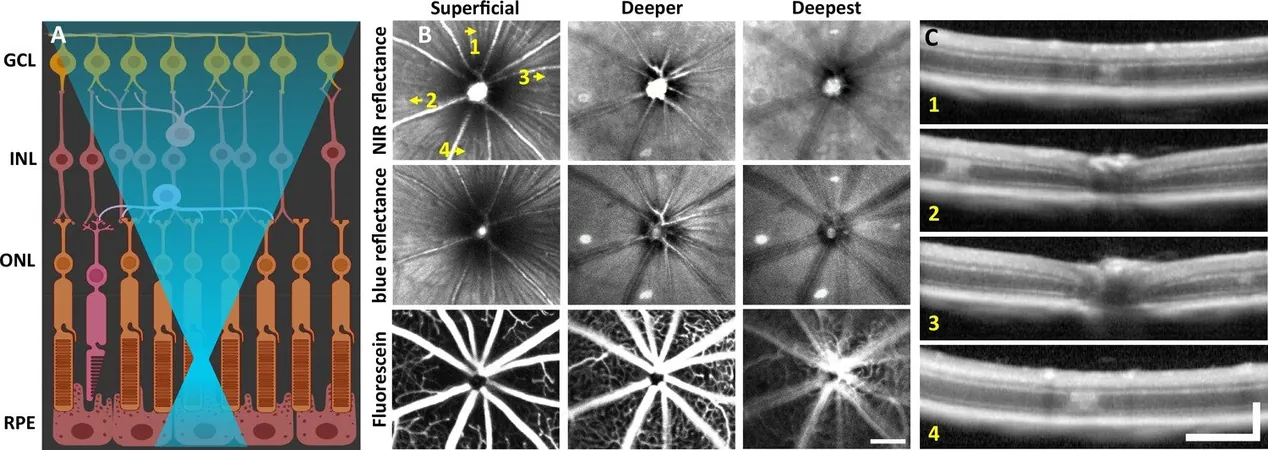
Unlocking the Genetic Mysteries of Asthma: New Breakthroughs in Research!
2025-06-30
Author: Yu
Decoding Asthma's Genetic Puzzle
In a groundbreaking study that’s set to change the landscape of asthma research, scientists from the University of Chicago have honed in on the genetic roots of this widespread condition. Despite numerous genome-wide association studies (GWAS) revealing countless genetic variants linked to asthma, the crucial ‘variant-to-function’ gap has long plagued researchers. This gap hinders our understanding of which genetic variants truly contribute to the disease.
Revolutionary Tools and Techniques
The new research integrates genetic data with innovative computational tools to delve into both adult-onset and childhood-onset asthma. The team successfully identified a plethora of genetic variants that are more likely to underpin these two distinct types of asthma, marking a significant stride towards more targeted treatments.
A Distinct Divide: Adult vs. Childhood Asthma
What’s particularly striking is the revelation of stark genetic differences between asthma that begins in childhood versus that which develops in adulthood. As Carole Ober, PhD, a leading figure in this study, emphasizes, the variations contributing to asthma are fundamentally different based on the disease's onset. Each type appears to involve unique genetic players, underscoring that asthma isn’t a one-size-fits-all condition.
Fine-Mapping: Bridging the Gap
The researchers targeted the variant-to-function issue head-on. Traditional methods often fall short due to the complex nature of genetic diseases, where multiple genes and environmental factors interact. By leveraging the UK Biobank's extensive genetic data, the team employed a cutting-edge statistical method known as ‘fine-mapping’ to discern which genetic variants are likely causal.
Chromatin Accessibility Unveiled
This study took a step further by integrating data regarding chromatin accessibility—the arrangement of DNA that influences gene expression. Regions that regulate genes 'open up' to become more accessible, suggesting a higher likelihood of involvement in asthma. By correlating these accessible chromatin regions with GWAS variants, the researchers uncovered a more compelling case for the genetic variants’ roles in asthma.
Identifying Causal Candidates
The analysis revealed 21 credible sets of variants linked to adult-onset asthma and a staggering 67 for childhood-onset, with only 16% overlap. By examining cis-regulatory elements (CREs) connected to asthma, they identified numerous candidate genes, many of which were found to be active in key cell types related to immune responses.
A Step Closer to Treatment
The team didn't stop at identifying genes; they validated the potential regulatory effects of selected candidates in bronchial epithelial cells, confirming that four out of six tested variants indeed had an impact. These promising results inch researchers closer to closing the variant-to-function gap, paving the way for future studies aimed at novel asthma treatments.
Collaborative Support and Future Directions
This pivotal research was partially funded by the National Institutes of Health and involved collaboration with notable experts in the field. With its illuminating findings, this study stands as a beacon of hope, encouraging further exploration into the genetic underpinnings of asthma and paving the path toward meaningful interventions.




 Brasil (PT)
Brasil (PT)
 Canada (EN)
Canada (EN)
 Chile (ES)
Chile (ES)
 Česko (CS)
Česko (CS)
 대한민국 (KO)
대한민국 (KO)
 España (ES)
España (ES)
 France (FR)
France (FR)
 Hong Kong (EN)
Hong Kong (EN)
 Italia (IT)
Italia (IT)
 日本 (JA)
日本 (JA)
 Magyarország (HU)
Magyarország (HU)
 Norge (NO)
Norge (NO)
 Polska (PL)
Polska (PL)
 Schweiz (DE)
Schweiz (DE)
 Singapore (EN)
Singapore (EN)
 Sverige (SV)
Sverige (SV)
 Suomi (FI)
Suomi (FI)
 Türkiye (TR)
Türkiye (TR)
 الإمارات العربية المتحدة (AR)
الإمارات العربية المتحدة (AR)